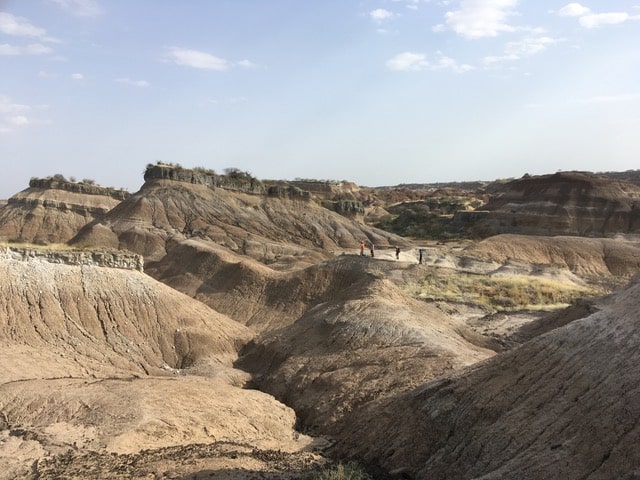Feedback between climate and ecosystems
The team first works on understanding the climate impacts on changes in marine microfauna and benefits from analytical development in automated micropalaeontology thanks to Luc Beaufort and Thibault de Garidel. The developments in imaging and image recognition developed on the marine microfossils are also applicable to continental microfossilsparticularly on pollens. This approach, combined with the team's palaeoenvironmental expertise in lake sedimentology as well as pollen, phytoliths and diatoms, is helping us to reconstruct the living environments of Pliocene hominids from East Africa. These same environments are also described and studied on the basis of the sedimentological evolution of the large lakes during the Quaternary.
The savannah and forest environments have a common domain of existence in terms of temperature and rainfall. The transition from one ecosystem to another is therefore governed by jumps from one stable threshold to another in which the the role of lights is crucial. This evolution between these two stable states is at the heart of the Julie Aleman (CR CNRS 2022).
The actualist approach to the study of marine plankton dynamics on a mesocosm and seasonal scale is important to the team. It will be enhanced by the support of biogeographical genetic data. The action of biological evolution, and even the feedback of this evolution to astronomical and/or climatic forcings, is an area of research. L'evolution of calcareous nannoplankton during the Quaternary is partly guided by cyclical changes in the Earth's orbit, which also modulate the productivity of this plankton and its feedback on the environment and climate. On a larger time scale, the major crises and the appearance of plankton has had a fundamental impact on the climate, making these objects an important focus of study in this theme area.
Integrating and comparing geochemical, tectonic and biological data at the exits of climate simulations carried by Yannick Donnadieu has led to the development of an innovative cluster investigating links between tectonics, climate and biota long time scales (orbital cycles and beyond). Financing the project in 2022 ERC-CoG DISPERSAL (supported by Alexis Licht) is building on this development. This project proposes an integrative approach (geochemistry, palaeontology, palaeogeography, climate simulations) to understanding the climatic and geographical controls on the dispersal of mammals in the past. The project has also increased our analytical resources, with the installation of an infrastructure for theclumped isotope analysisA new geochemical approach for reconstructing surface temperatures.

Projects
- 2023-2027: ERC-CoG DISPERSAL: Climatic and paleogeographic controls on intercontinental mammal dispersal
- 2021-2023: INSU Tellus/INTERRVIE - RAMDAM : Adaptive Responses of African Mammals to the MIS M2 Climate Episode

